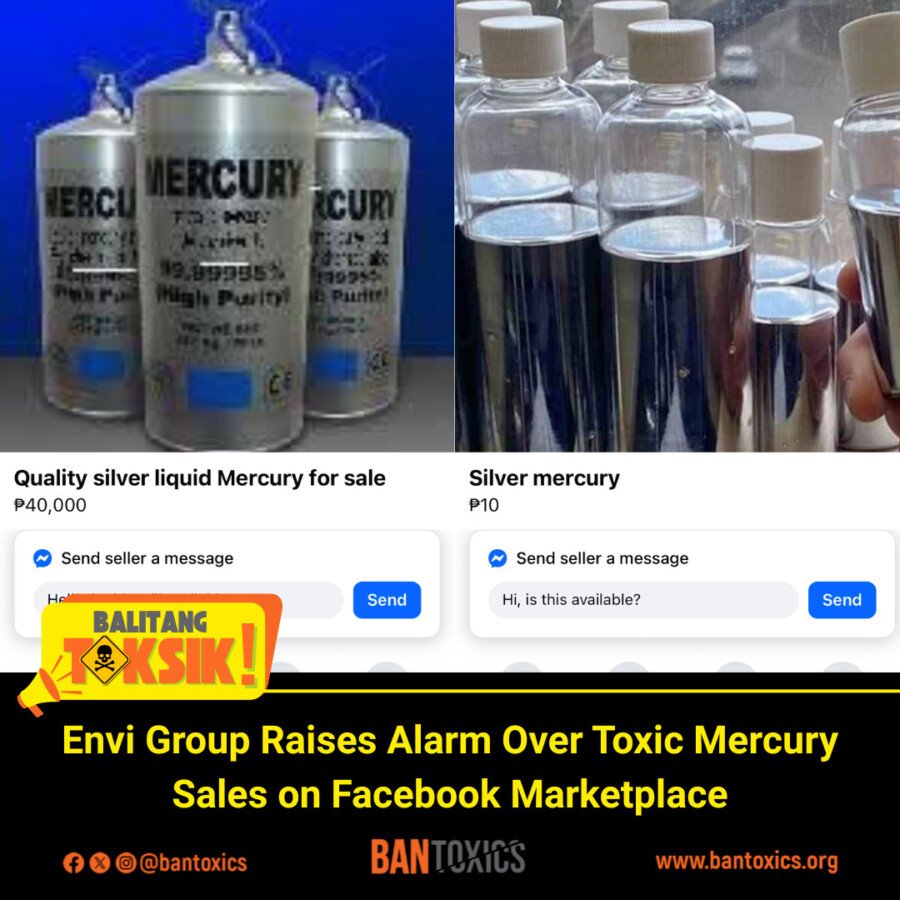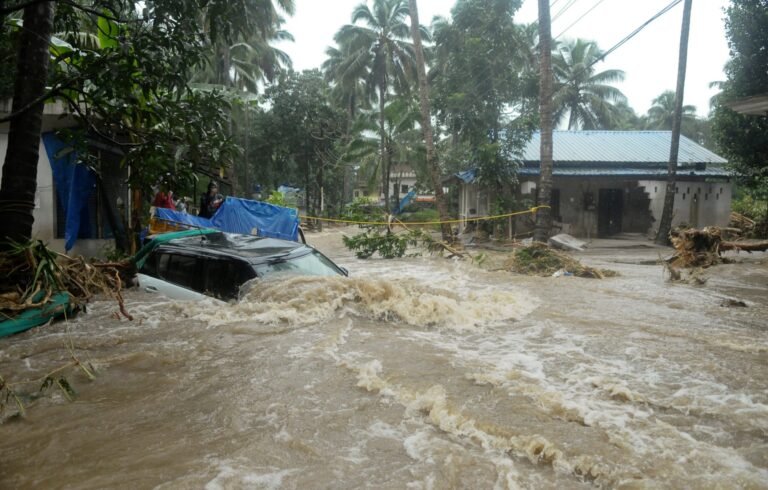
ON the 5th anniversary of the ratification of the Minamata Convention on Mercury by the Philippine government, chemicals and waste watchdog BAN Toxics raised the alarm over the online sale of elemental mercury, also known as silver mercury or quicksilver, on Facebook Marketplace.
Mercury is a highly toxic chemical, and its importation, sale, and distribution are strictly regulated and, in most cases, prohibited under Philippine laws aligned with the Minamata Convention, which the country ratified in 2020 to eliminate mercury use in products, processes, and trade.
In a recent online market monitoring, the group found 23 active Facebook Marketplace postings of silver mercury offered by sellers based in Angeles City (Pampanga), Baguio City (Benguet), Sta. Maria (Bulacan), Silang (Cavite), Cebu City and Lapu-Lapu City (Cebu), Iloilo City (Iloilo), San Pedro City (Laguna), Lipa City (Batangas), and the Metro Manila cities of Makati, Manila, Muntinlupa, Parañaque, Pasay, and Quezon City. The postings commonly advertise silver mercury as a “high-density, silver-colored liquid metal used in gold mining, amalgamation, scientists’ instruments, and chemical synthesis.” Prices range from P22,000 to P71,000 per flask/cylinder, with a net weight of 34.5 kg.
Several Facebook groups dedicated to the sale of mercury were also identified, along with one listing each on the e-commerce platforms Lazada and Shopee.
“It is appalling that toxic mercury continues to be sold openly, especially through online platforms,” said Thony Dizon, BAN Toxics’ Advocacy and Campaign Officer. According to Dizon, the government already has in place several pertinent policies to control and eliminate the use of mercury in the country. One of the key regulations is the Department of Environment and Natural Resources (DENR) Administrative Order No. 2019-20, or the Revised Chemical Control Order for Mercury and Mercury Compounds.
The Department of Health (DOH) also issued Administrative Order No. 2020-0020, which mandates the phase-out of dental amalgams in accordance with the Minamata Convention. In addition, the Food and Drug Administration (FDA) released Circular No. 2022-003, banning all mercury-added thermometers, sphygmomanometers, and dental amalgam capsules. The FDA also regularly issues advisories banning mercury-containing skin-lightening products found in the market.
Meanwhile, Article 3 of the Minamata Convention does not allow the import of mercury without government consent, ensuring that both the mercury source and proposed use comply with the Convention and applicable domestic law.
The Minamata Convention was established in response to decades of severe health and environmental damage caused by mercury exposure. It addresses mercury pollution by limiting mining, regulating trade, reducing and, where feasible, eliminating mercury use in products and processes, controlling emissions, and promoting safe waste disposal.
According to the World Health Organization (WHO), mercury is a neurotoxin that can cause irreparable damage to the nervous system. It can also affect the brain and kidneys, and is significantly dangerous to children and pregnant women. It is also known for its long environmental persistence and global mobility. Its emissions and releases can bioaccumulate and biomagnify in the food chain, posing a significant threat to human health and the environment.
“Despite our strict laws and regulations on mercury, it begs the question: how does this hazardous substance continue to enter the country?” Dizon asks.
BAN Toxics surmises that buyers of the mercury sold on Facebook are small-scale gold mining operations in the country. Mercury is commonly used in artisanal and small-scale gold mining (ASGM) as a means of extracting gold from processed ores. While its use has been strictly prohibited, mercury continues to be used in ASGM operations to this day. According to Arleen Honrade, BAN Toxics Community Development Officer and Secretary of the National Coalition of Small-Scale Miners of the Philippines, Inc. (NCSSMPI), mercury use in the sector remains prevalent due to the lack of sufficient support for mercury-free technologies and alternatives.
“As a poverty-driven sector that relies on subsistence mining, the transition to mercury-free processes needs to be supported by the government,” Honrade added.
BAN Toxics and NCSSMPI are pushing for amendments to the decades-old Republic Act No. 7076, or the People’s Small-Scale Mining Law, to better support small-scale miners in transitioning to environmentally sound technologies in their operations.
BAN Toxics also raised concerns about the transboundary nature of the mercury trade, noting that many of the products sold online are likely smuggled into the country. The group is calling for stronger intergovernmental cooperation to address illegal mercury shipments, especially those entering through e-commerce platforms and informal channels.
“We call on the DENR-Environmental Management Bureau (EMB) to investigate individuals and groups involved in the illegal sale of mercury, on the Department of Trade and Industry (DTI) to strengthen regulation of online platforms facilitating such transactions, and on platforms such as Facebook to take immediate action in removing hazardous listings and accounts engaged in mercury trade,” the group said.





